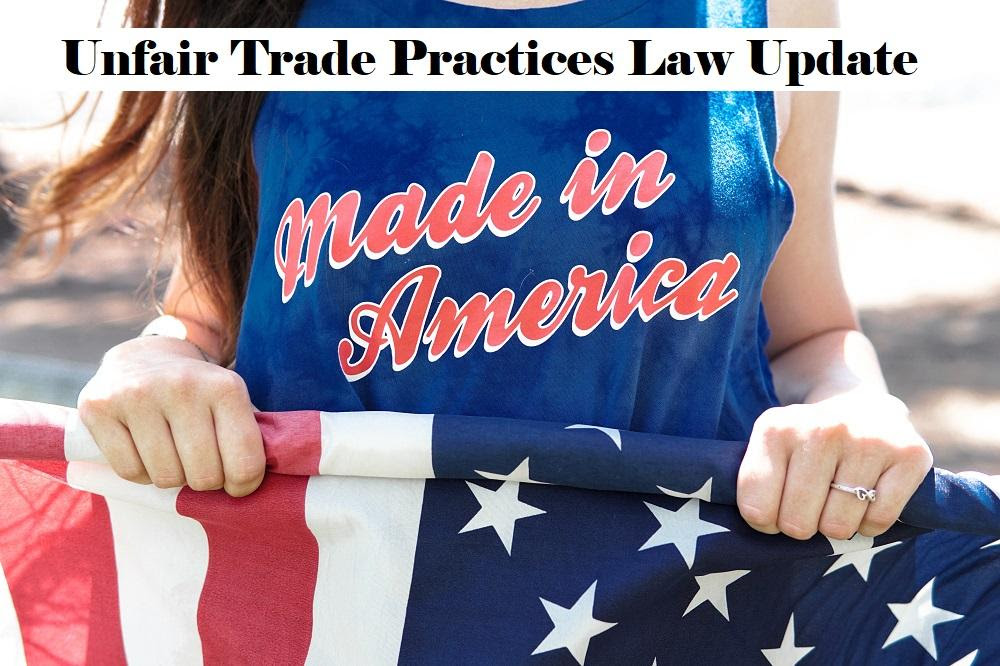FTC Increasing Enforcement Related to Deceptive Reviews and Endorsements
The Federal Trade Commission (FTC) recently announced its intention to crack down on fake online reviews and other deceptive endorsements. In fact, it sent Notices of Penalty Offenses to more than 700 companies. A recipient that engages in the conduct described in the notice may be subject to civil penalties of up to $43,280 per violation.
These Notices identify the following as examples of unlawful activities:
• falsely claiming an endorsement by a third party;
• misrepresenting that an endorser is an actual user, a current user, or a recent user;
• continuing to use an endorsement without good reason to believe that the endorser continues to subscribe to the views presented;
• misrepresenting that an endorsement represents the experience, views, or opinions of users or purported users;
• using an endorsement to make deceptive performance claims;
• failing to disclose an unexpected material connection with an endorser; and
• misrepresenting that the experience of endorsers represents consumers’ typical
or ordinary experience.
Once a business has received one of these Notices, it has “actual knowledge” that those practices violate the law. The FTC can sue the business in federal court if it engages in unlawful practices after receiving notice that those acts are unlawful.
“Made in America” Claims
A new rule, effective August 13, 2021, prohibits labeling any product as “Made in the United States” unless “the final assembly or processing of the product occurs in the United States,” “all significant processing that goes into the product occurs in the United States,” and “all or virtually all ingredients or components of the product are made and sourced in the United States.”
This rule applies not just to statements that an item is “made” in the USA, but also to “any unqualified representation, express or implied, that a product or service, or a specified component thereof, is of U.S. origin, including, but not limited to, a representation that such product or service is ‘made,’ ‘manufactured,’ ‘built,’ ‘produced,’ ‘created,’ or ‘crafted’ in the United States or in America, or any other unqualified U.S.-origin claim.”
The rule authorizes the FTC to seek civil penalties of up to $43,280 per violation. The FTC has already begun enforcing this new rule. Last month, it settled its charges against a mattress company and its owner for alleged false, misleading, or unsupported advertising claims that their imported mattresses were made from 100% USA-made materials.
Illegal Dark Patterns
The FTC recently issued a new Enforcement Policy Statement warning businesses against deploying “dark patterns,” in particular, “negative option” marketing and operations.
Negative option practices try to trick or trap customers into subscription services by allowing the seller to interpret a consumer’s failure to take affirmative action to reject a good or service or to cancel an agreement as acceptance (or continuing acceptance).
According to the FTC, examples of these unlawful practices include:
• automatic renewals of subscriptions (e.g., magazine subscriptions);
• continuity plans (i.e., a consumer continues receiving the product or service until the consumer takes action to cancel the agreement);
• free-to-pay conversions (after a free trial, the seller can automatically begin charging a fee)
• fee-to-pay conversions (after a trial period at a nominal cost, the seller can automatically raise the price); and
• prenotification plans (e.g., a book-of-the-month club sends notice of an offer to the customer and unless the customer takes affirmative action to decline the offer, the customer is sent and charged for the book).
The Statement provides guidelines for sellers, highlighting four requirements that sellers using negative option programs must follow:
1. Sellers must clearly and conspicuously disclose the material terms of a negative option offer, including, at a minimum, key terms such as the existence of the negative option offer, the offer’s total cost, and how to cancel the offer.
2. Sellers must disclose these material terms before consumers agree to the purchase.
3. Sellers must obtain consumers’ express informed consent to such offers.
4. Sellers must not erect unreasonable barriers to cancellation or impede the effective operation of promised cancellation procedures, and must honor cancellation requests that comply with such procedures.
There are a number of other requirements as well, including that a seller employing negative option practices should provide cancellation mechanisms that are “at least as easy to use” as the method the consumer used to initiate the negative option feature.
This means, for example, that when a seller allows consumers to sign up for a subscription online, the seller cannot require consumers to call in order to cancel the subscription. In addition, if a seller does require or permit telephone cancellation, the seller must promptly answer all calls made to the cancellation number during normal business hours.
Further, the seller is required to ensure that the calls are not lengthier or otherwise more burdensome than the telephone call the consumer used to consent to the negative option.
**********************
Whether you’re a business that needs assistance complying with these laws or a consumer that feels you’ve been a victim of these unlawful practices, please feel free to contact us.






